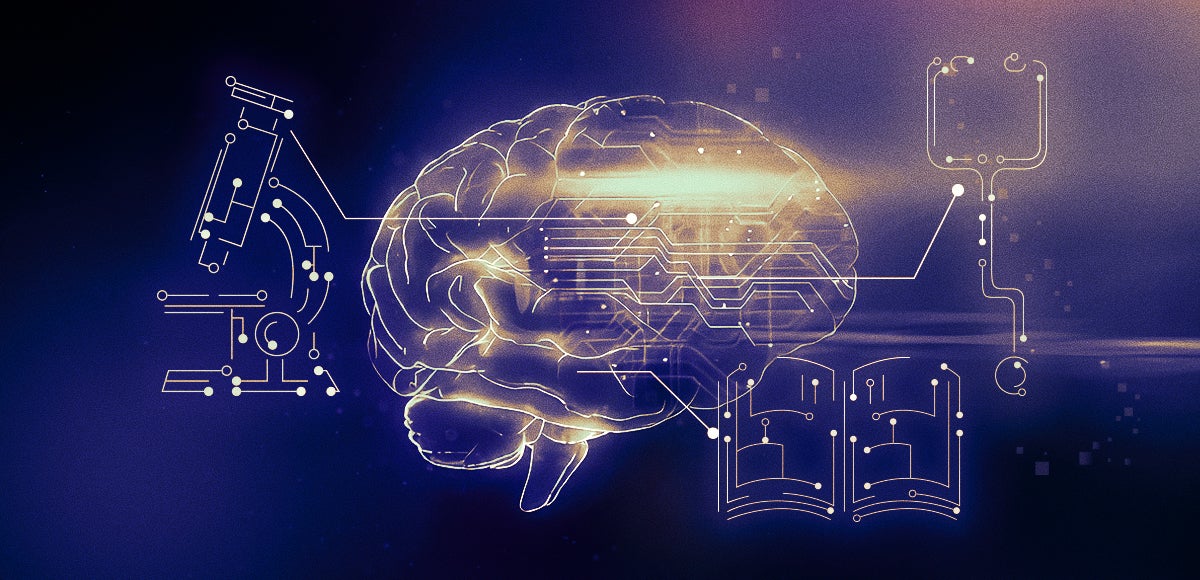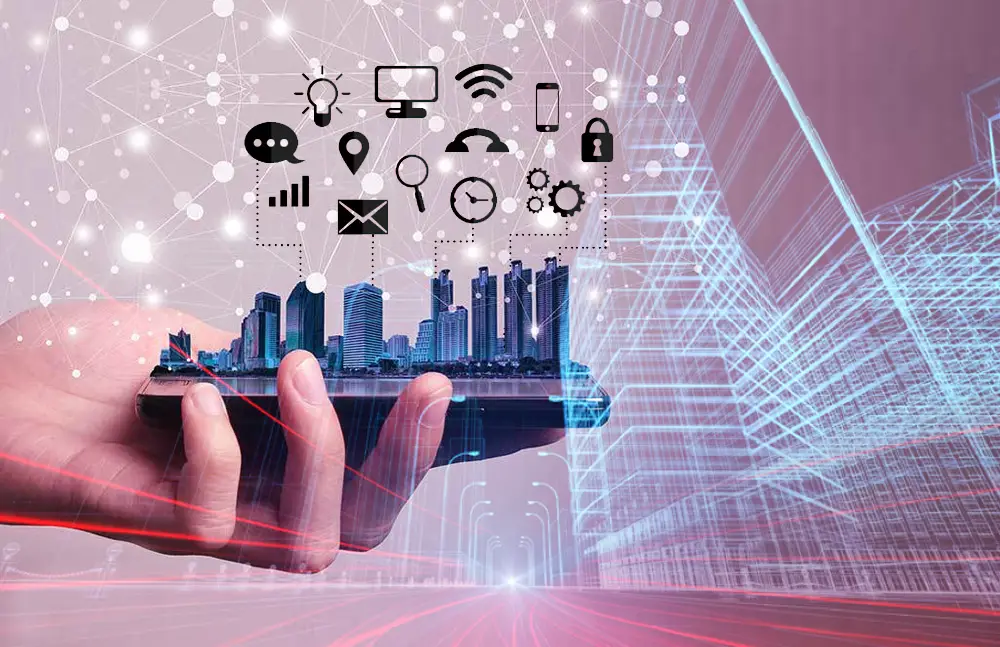Ai’s impact on smart city infrastructure is huge and is currently transforming cities around the world. As cities become more populated, the need for innovative and sustainable solutions becomes more important than ever.
Ai can help cities optimize their traffic flow, improve public safety, and even monitor the health of the environment. Additionally, ai can be used to analyze large amounts of data and provide insights into city functions that were previously impossible to obtain.
The integration of ai into smart city infrastructure is a rapidly growing field and has the potential to help cities become more efficient, sustainable, and safe for their residents.

Credit: www.gatesnotes.com
Current Applications Of Ai In Smart City Infrastructure
Ai’S Impact On Smart City Infrastructure: Current Knowledge
As we continue to advance in technology, smart cities are becoming more prevalent. The combination of artificial intelligence (ai) and smart city infrastructure has made way for significant improvements in various aspects of city living. From transportation to energy and environment, public safety and security, and governance and citizen services, there are numerous ways in which ai is transforming the smart city landscape.
Transportation
- Ai-powered traffic management systems can help reduce traffic congestion in cities by adjusting traffic lights to optimize the flow of vehicles.
- Smart parking systems that use ai can help drivers locate available parking spaces and reduce parking time.
- Ai can also aid in the development of intelligent transportation systems that help reduce transportation-related greenhouse gas emissions.
Energy And Environment
- Ai-powered energy grids can monitor energy consumption and create energy-efficient solutions to reduce wastage and improve sustainability.
- Smart waste collection systems that use ai can optimize waste disposal routes, making them more efficient and cost-effective.
- Ai-powered environmental monitoring systems can collect and analyze environmental data to inform policymakers about sustainability issues in the city.
Public Safety And Security
- Ai-powered surveillance cameras can detect potential security threats and send alerts to authorities.
- Smart emergency response systems that use ai can manage resources and dispatch emergency services more efficiently.
- Ai can also examine social media to understand potential crime patterns and enhance predictive policing.
Governance And Citizen Services
- Ai-powered chatbots can improve citizen engagement with government officials by providing instant assistance to inquiries and complaints.
- Smart city management systems can assist in managing public resources by predicting areas where maintenance and repairs may be required.
- Ai-powered analytics can also provide city officials with data insights that can help them develop better policies and initiatives for citizens.
With ai’s capabilities, smart city infrastructure is on track to become more efficient, sustainable, and liveable. As we continue to explore and expand ai applications, there is no doubt that the future of smart cities will be even more advanced and transformative.
Challenges And Opportunities
Globally, cities are striving to become smarter, and the integration of artificial intelligence (ai) plays a significant role in this process. The impact of using ai in smart city infrastructure is profound, and it brings with it opportunities and challenges.
Challenges Of Ai Adoption In Smart City Infrastructure
The adoption of ai in smart city infrastructure comes with some challenges, which include:
- Cost: Implementing new technology like ai is expensive, and the cost of buying, implementing, and maintaining the infrastructure may be too high for some cities.
- Privacy and security concerns: With ai systems generating large amounts of data, concerns arise about the privacy of citizens. There is also the risk of a data breach that could compromise confidential information.
- Data quality and accessibility: The quality of data used to train ai algorithms is critical, and if it is not accurate, the outcomes of the system could be faulty. Additionally, the availability of data might pose a challenge in some cities.
- Skills gap: There may be a shortage of ai experts and highly skilled professionals required to implement and maintain the ai infrastructure.
Opportunities Of Ai Adoption In Smart City Infrastructure
While there are challenges, the adoption of ai in smart city infrastructure presents numerous opportunities, including:
- Efficiency and productivity: Ai can optimize city services by identifying areas of high congestion and recommending alternative transport routes, thus saving time and reducing fuel consumption.
- Improved safety: Ai can help to detect and prevent crime, monitor traffic flow and prevent accidents, and promote safe, accessible, and inclusive spaces for all citizens.
- Environmental sustainability: Ai can detect and monitor environmental risks and recommend policies and practices that promote sustainability.
- Enhanced citizen engagement: Ai can help to enhance citizen engagement by facilitating communication between governments and citizens to improve city service delivery.
The adoption of ai in smart city infrastructure is a clear indication of the impact of technology in shaping the future of cities globally. Although it presents unique challenges, the benefits outweigh the challenges. Through collaboration, innovation, and partnership, cities can overcome the challenges and realize the full potential of ai.
The Future Of Ai In Smart City Infrastructure
Emerging Trends And Technologies
The future of ai in smart city infrastructure, as it stands today, is an exciting one. The world is continually moving towards a more connected future, and we can expect emerging trends and technologies to play a central role in this.
- Intelligent traffic management: Ai is helping cities manage traffic flows efficiently, which is essential in reducing congestion and easing the daily commute. This technology leverages machine learning algorithms to analyze data and optimize traffic patterns in real-time. This system can also predict traffic congestion and help traffic officials take preventive measures.
- Predictive maintenance: Ai-powered solutions can monitor the city’s infrastructure, ensuring that it stays operational at all times. By collecting data from sensors and other sources, these systems can accurately predict when maintenance is needed before a system failure occurs. This technique can result in huge cost savings for governments and ensure city residents stay safe.
- Smart waste management: An intelligent waste management system notifies officials when trash cans are full, optimizing waste collection routes accordingly. This optimized system collection helps reduce fuel consumption and carbon dioxide emissions.
Future Opportunities And Applications
The potential future opportunities and applications that ai presents for smart city infrastructure are vast.
- Green infrastructure: Ai can provide real-time insights into environmental factors like the weather, temperature and humidity levels. With this information, cities can make informed decisions on how to implement green infrastructure initiatives that can have a positive impact on the environment.
- Enhanced public safety: Through the use of ai and machine learning, cities can collect data and monitor public spaces for suspicious behavior, reducing crime rates, and increasing public safety. Officials can also use this technology to detect potential natural disasters before they happen and respond accordingly.
- Personalized services: Ai can help make smart cities more citizen-centric by analyzing data from sensors and other devices to provide personalized services like tailored environmental and transportation data.
Potential Impact Of Ai On Future Smart Cities
The potential impact of ai on future smart cities is enormous. From improved decision-making processes to reduced pollution rates and increased public safety, ai technologies are going to reshape the way we experience city life. However, as with any new technology, there will be challenges to overcome.
These include privacy concerns, ethical considerations, and regulatory frameworks.
The integration of ai in smart city infrastructure will revolutionize how urban areas are managed and maintained. Governments and city officials should continue to explore new ways to implement ai technologies, keeping the future of our cities sustainable and citizen-centric.
Frequently Asked Questions For Ai’S Impact On Smart City Infrastructure: Current Knowledge
What Is Smart City Infrastructure?
Smart city infrastructure refers to the use of advanced technology and connected devices to enhance the efficiency of urban services and improve the quality of life for citizens.
How Does Ai Impact Smart Cities?
Ai impacts smart cities by enabling real-time data analytics, prediction modeling, and automated decision-making, which improves city services and resource allocation.
What Are The Benefits Of Ai In Smart Cities?
The benefits of ai in smart cities include improved efficiency and effectiveness of city services, enhanced public safety measures, and optimized resource allocation to minimize waste.
What Are Some Examples Of Ai In Smart Cities?
Examples of ai in smart cities include smart traffic management systems, intelligent waste management systems, and predictive maintenance of city infrastructure.
What Are The Challenges Of Implementing Ai In Smart Cities?
Challenges of implementing ai in smart cities include data privacy concerns, the need for significant investment in infrastructure, and the potential for biases in ai decision-making.
Conclusion
With the rapid advancement of technology, artificial intelligence has become an indispensable tool for smart city infrastructure. Cities that were once inhibited by inefficiencies and outdated systems can now benefit from ai-powered optimization, predictive maintenance and cost-saving measures. While challenges such as privacy concerns and data security remain, the potential benefits of ai in smart cities are undeniable.
Ai can help cities make more informed decisions, better manage their resources and improve their overall quality of life. As we continue to witness the evolution of smart cities, it is imperative that we stay informed about the latest ai developments and continue to promote ethical and responsible use.
Only then can we fully harness the power of ai to create sustainable, efficient and intelligent urban environments that benefit everyone.


